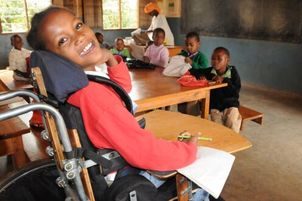
Sep 25, 2020 | News
On 24 September 2020, the ICJ held a webinar in collaboration with the Lesotho National Federation of Organisations of the Disabled on the right to education for children with disabilities.
Presenters and participants included representatives from civil society organizations, teachers’ unions, teachers and the Lesotho Department of Education.
“Children with disabilities have a right to access to education on an equal basis with all other children. The COVID-19 pandemic must not hamper the Lesotho governments efforts to ensure access to inclusive education for all children,” said Kaajal Ramjathan-Keogh, ICJ’s Africa Director.
Participants highlighted accessibility-related problems faced by learners with disabilities in the context of the COVID-19 pandemic. Some examples include:
- Ordinary masks necessary to combat the spread of COVID-19 inhibit communication for learners with hearing disabilities who often communication in part by lip-reading. These require access to face visors and/or transparent masks. Some deaf students also had difficulty in understanding the COVID-19 pandemic and virus, despite efforts to explain it to them.
- Blind learners need more access to hand sanitizer as they need to touch their surroundings for mobility. This also makes social distancing more difficult for them.
- Teachers have trouble understanding how to comply with social distancing measures while assisting learners experiencing epileptic seizures.
- Many learners with disabilities have stayed at home during the pandemic, not understanding why they were not at school.
- Many children with disabilities are rendered more vulnerable to sexual violence and exploitation as they observe stay at home rules.
A representative of the Department of Education explained various measures which government had put in place to ensure that these obstacles could be overcome so that learners with disabilities could enjoy their right to education in the context of COVID-19. Learners’ health and safety would also remain a priority.
The Department noted the delays in the implementation of its inclusive education policy as a result of a lack of funding as government resources are diverted to COVID-19 responses.
The need for compliance with Lesotho’s global and regional international human rights obligations was also highlighted with participants agreeing about the importance of ensuring that there is “strength in numbers” in advocacy efforts toward the realization of children with disabilities’ right to education.
“Ensuring the right to education of persons with disabilities does not imply sacrificing and compromising their right to health. All human rights are interdependent and Lesotho should be guided by all of its human rights obligations as it continues to implement its domestic inclusive education policy during the COVID-19 pandemic,” Ramjathan-Keogh added.
Background
Article 24 of the Convention on the Rights of Persons with Disabilities (CRPD) and the Protocol to the African Charter on Human and Peoples’ Rights on the Rights of Persons with Disabilities in Africa require States parties to ensure that their education systems are inclusive and fully realize the right to education of all children with disabilities. The normative content of Article 24 of the CRPD and corresponding obligations of member States are expanded on in the General Comment No 4 of the Committee on the Rights of Persons With Disabilities.
For more information on the impact of COVID-19 on access to education, find the UN Special Rapporteur on the right to education’s report here.
Contact
Nokukhanya (Khanyo) Farisè, Legal Adviser (Africa Regional Programme), e: nokukhanya.farise(a)icj.org
Tanveer Jeewa, Communications Officer (Africa Regional Programme), e: tanveer.jeewa(a)icj.org
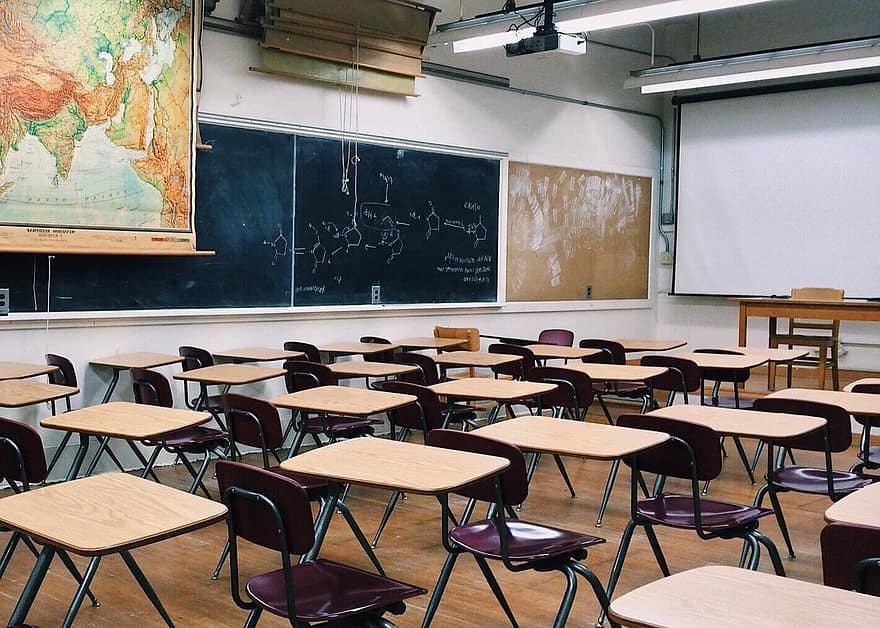
Jul 31, 2020 | Agendas, Events, News
The ICJ, together with the Global Initiative on Economic, Social and Cultural Rights (GI-ESCR) and the Right to Education Initiative (RTE), held webinars on 24 and 31 July.
The discussions explored The Guiding Principles on the Human Rights Obligations of States to provide public education and to regulate private involvement in education (Abidjan Principles) and their application in the context of COVID-19.
The webinars focused respectively on public education and private education.
Participants included judges and representatives of civil society organizations from Kenya, Uganda, South Africa and Sierra Leone.
“The aim of the conversation in these webinars is to better understand the problems facing civil society and judiciaries in the four countries in ensuring the protection of the right to education in the context of Covid-19 and the increased privatization of education,” said ICJ Commissioner Justice Jamesina King of Sierra Leone.
The Abidjan Principles, based in large measures on existing international law and standards, were developed by leading international experts and adopted in 2019.
They clarify and set out elements of State obligations to uphold the right to education and related standards in both public and private educational settings.
Participants were able to deepen their understanding of the Abidjan Principles as well as the increased pressure placed on education systems across Africa as a result of COVID-19.
“COVID-19 has dramatically exacerbated already well-known issues in the realization of the right to education” and the “divide in quality of access to education between public and private sectors,” added Justice King.
“Private actors in particular… have been reported to have capitalized on the pandemic to extend their business in the education sectors.”
Participants raised concerns about the use of public funds to support private actors in education, an issue which is addressed by the Abidjan Principles.
Ashina Mtsumi from the GI-ESCR, summarized the Abidjan Principles and emphasized that “States’ first priority should be public education, as there is no obligation for states to fund private actors in education.”
A theme emerging from the discussions was the important role of the State in regulating private actors in education in the context of the global pandemic. Judges discussed the role of the judiciaries in their respective countries in ensuring the protection of the right to education.
“Can courts force private institutions to continue [operating] or even reduce school fees as an incidence of the right to education?,” Justice Joel Ngugi of Kenya asked.
Justice Ngugi also highlighted the need for governments to ensure that schools are safe for all learners in the context of COVID-19.
Judge Lydia Mugambe said that while in Uganda the pandemic had seen some private schools continuing with online learning, learners in public schools had had to depend on State provision of learning through newspapers and news stations which had not been sufficient. In the COVID-19 context, States must ensure that they continue to “require private instructional educational institutions to meet the minimum standards set by the State”, as indicated by the Abidjan Principles.
“The real problem is that our infrastructure is bad, the education system is bad and we have had a constitutional right to education since 1994 and I am embarrassed to say that the Covid-19 crisis has not exacerbated the problems, but has exposed the problems and have left no place to hide for years and years of government negligence,” said former Justice of the Constitutional Court in South Africa Zak Yacoob.
Representative from civil society organizations from all four countries emphasized the increasing risks introduced to the right to education as a result of privatization of education in Africa.
Watch the first webinar here.
Contact:
Khanyo Farisè (ICJ Legal Adviser) e: Nokukhanya.Farise(a)icj.org
Tim Fish Hodgson (ICJ Legal Adviser) t: +27828719905; e: timothy.hodgson(a)icj.org
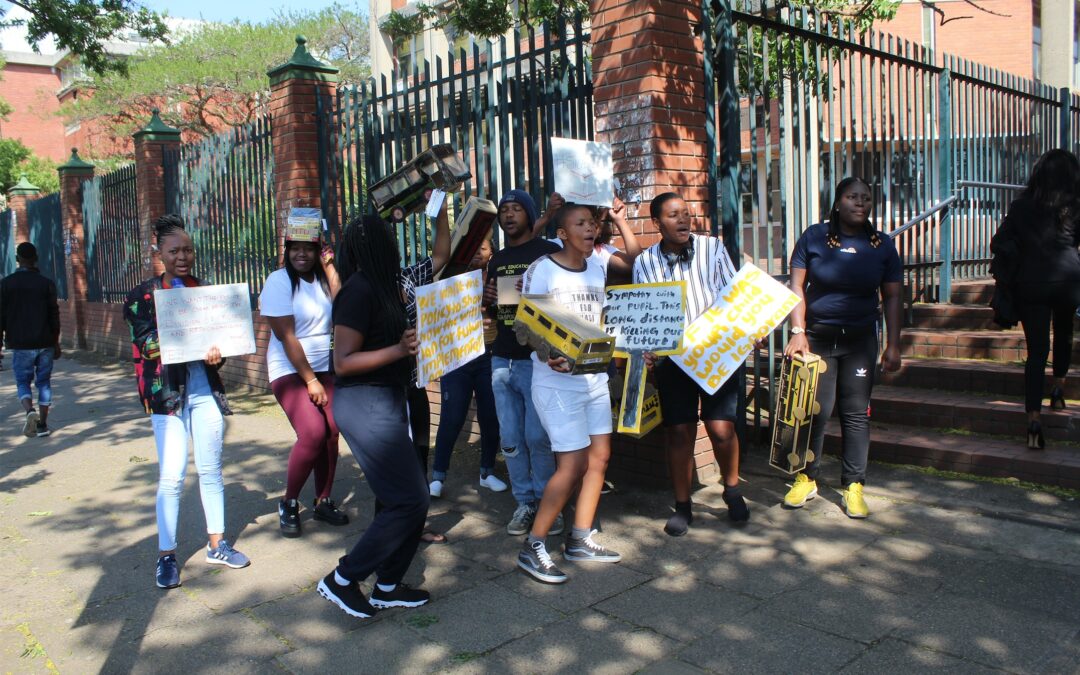
Nov 1, 2019 | News, Op-eds
An opinion editorial by Shaazia Ebrahim, Communications Consultant for ICJ’s Africa Programme.
Nomfundo Ngobese (25) was used to waking up at 4am to walk the 35km from her home in Nquthu, northern KwaZulu Natal (KZN) to school. In the blistering heat and the freezing cold, crossing rivers and sometimes dodging rain and lightning, Ngobese, was like many South African school learners who walked for hours to get to and from school each day.
“We had to wake up past 4 so that at past 5 we can go to school. In winters when we had to go to school, it was dark. We didn’t feel safe… We didn’t even realise the difficulties our smaller siblings were facing. It’s a thing that we just got used to,” Ngobese said.
While learners all over South Africa walk for hours every day to get to school and back home, KZN has the greatest need for scholar transport. According to the 2016 General Household Survey done by Statistics South Africa, some 483 633 learners in KZN walk more than half an hour in one direction to school each day.
But the end of the battle for learners with similar experiences to Ngobese could be in sight.
On October 23, Ngobese joined other Equal Education (EE) post-school youth organisers in picketing outside the Pietermaritzburg High Court. EE, represented by the Equal Education Law Centre (EELC), had sued the KZN Department of Education (DoE) to court to force the government into releasing the provincial scholar transport policy, which should have been available in December 2018.
They emerged victorious when government committed to releasing its Scholar Transport Policy for public comment by 31 January next year. Should the KZN DoE fail to comply, it will have to answer to the courts. The release of this policy is a critical step in ensuring that more learners will be able to have access to school transportation.
EE has been working to achieve free and safe scholar transport in Nquthu since 2014, after Equalisers told EE about the difficulties they faced with scholar transport. Learners highlighted the challenges they faced walking very far distances in extreme heat and in thunderstorms, and crossing rivers and mountains, at great risk of violent crime including sexual assault. Many learners said they felt tired and hungry after the long walk, and could not concentrate properly in class or perform well at school.
“I was once an Equaliser myself and I once walked to school every morning and afternoon,” Palisa Motloung (21) said. “We were never sure what’s going to happen on those routes. I remember this one time when I was walking with my friend, and then we passed a bush and there were men there talking. We couldn’t tell if they were talking on this side or that side of the fence because it was dark. It was very scary, we literally had to run. It was quite an experience and I don’t wish any child should go through that,” Motloung said.
After local visits to schools in Nquthu in 2014 and 2015, EE wrote to the KZN Department of Transport (DoT) and KZN DoE about these hardships learners were facing, and requested information about how they were providing scholar transport in the province. Governments’ replies were unsatisfactory, with the DoE responding that it found that only one of the 12 schools EE discussed qualified for scholar transport.
After long back and forth with government, who provided scholar transport in dribs and drabs, EE found that there was still a desperate need for scholar transport. Government officials claimed that five of the 12 schools did not qualify for scholar transport because learners were not attending the schools closest to their homes. They conceded that seven of the 12 schools did qualify for scholar transport, but said there was no money to provide it. EE took the matter to court.
This is not the first time that a provincial department of education has sued in South Africa for a failure to provide transport for learners. In 2015 the Judge Plasket of the Eastern Cape High Court held in a similar case that “The right to education is meaningless without … transport to and from school at state expense”.
The initial case was set to be heard at the Pietermaritzburg High Court. But before the hearing began, the lawyers representing EE and the lawyers representing the KZN government entered into negotiations with the KZN DoE and KZN DoT made certain promises. The order granted by the Pietermaritzburg High Court stated that the KZN DoE promised to provide scholar transport to learners in the 12 Nquthu schools by 1 April 2018.
While this was a momentous victory for EE, as part of ongoing court processes, the organisation filed a response to the KZN DoE report to the court, recognising the important steps that it had taken, but also noting significant gaps that remain.
The EE urged the KZN DoE in June last year to provide clear timelines for the finalisation of its scholar transport policy. This is a crucial step to clarify which learners qualify for government-subsidised scholar transport, how the KZN DoE and the KZN DoT will work together to provide scholar transport, and how learners’ safety will be ensured.
This report has been delayed for over a year now, but if the decision of the Court is to be implemented, it will be released in January next year.
After coaxing from South African civil society, including EE, The National Learner Transport Policy was finally published in October 2015. The policy contains important scholar transport guidelines and principles that provinces should adhere to. However, while this policy has been finalised, it has yet to be adopted.
The government’s failure to provide learners with transport is a violation of the right to basic education which is protected under the South African Constitution and international law. The International Covenant on Economic Social and Cultural Rights, which South Africa ratified makes clear that education must be free for all learners at a primary school level and should progressively be made free for all learners at all levels.
Free education includes not only the absence of fees but also all other costs include free, reliable and safe transport. This means learners have a right to access their schools safely, and on time, so that they can use their energy to concentrate in class. For many learners in South Africa this is impossible without government funded transport.
“Most of the time, [schoolchildren] wake up very early and they get to school very hungry and tired. This affects their school percentage, the pass rate of the school also gets affected because of the long kilometers that children have to walk to school,” Sanele Zulu (22) said.
“I walked to school but I didn’t even know it was a wrong thing to do until Equal Education came and opened our minds. Even our parents didn’t know it was wrong, they thought that because in the olden days they walked long distances, so we must get used to it. But when EE came to our rural village, something went off in our eyes and we saw things in a different way,” Ngobese said.
Reflecting on their own experiences during school Ngobese, Motloung, and Zulu, continue to use their voices for learners who walk long distances to go to school. Equal Education, with the legal assistance of EELC, continues to advocate for the rights of learners in KwaZulu-Natal and all over South Africa.
Even though the persistent delays in the development and implementation of government policies to facilitate free, safe transport to and from schools is a cause for concern, learner’s faith in the judicial system and rights-based advocacy should be a source of optimism about the future of constitutional democracy in South Africa.
This op-ed was originally published in the Mail & Guardian.
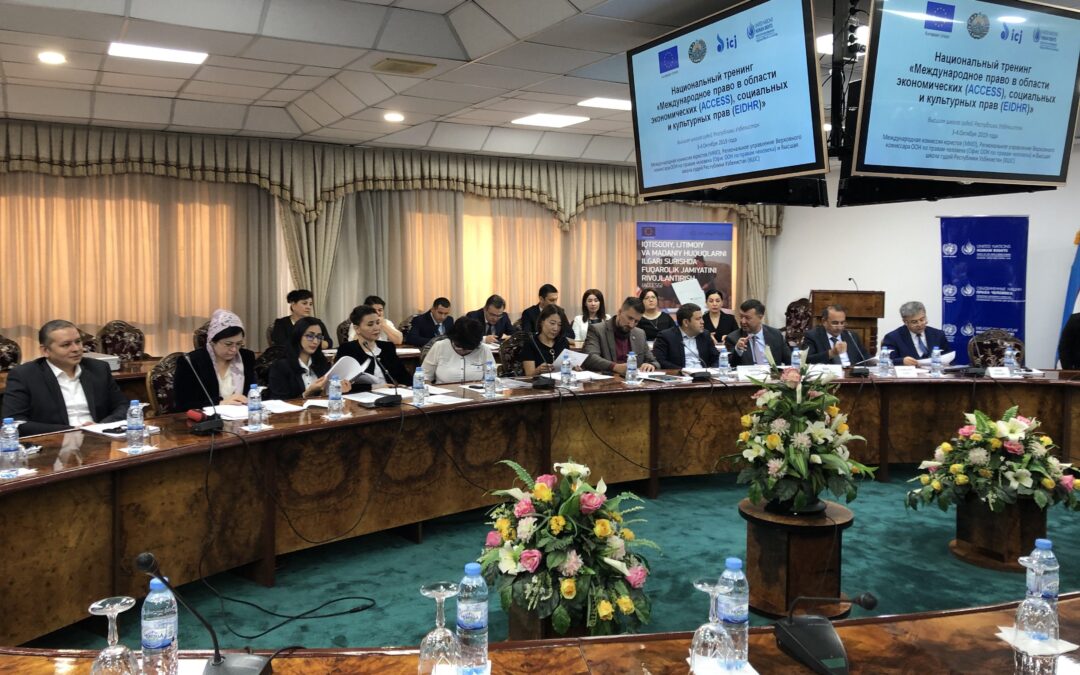
Oct 3, 2019 | News
Today, the ICJ, the Regional office of the UN High Commissioner for Human Rights (OHCHR) for Central Asia and the High School of Judges of the Republic of Uzbekistan (HSJ) are organizing a national training on “International law on economic, social and cultural (ESC) rights.”
This two-day training is one of series of similar trainings, held in 2019 and 2020, that will address international law on issues including rights to healthcare, education, housing and rights in the workplace.
The training sessions aim to build the capacity of judges, lawyers, prosecutors, legal academics and other representatives of the civil society on international standards on ESC rights, to share best practices on compliance by States with their international obligations, including through judicial practices related to ensuring access to justice for ESC rights.
The training sessions ensure diversity and networking opportunities between members of the judiciary and others legal practitioners.
Each training consists of four modules on (1) introduction to international law on ESC rights; (2) International obligations concerning access to justice and remedies for ESC rights in national courts; comparative examples of good practice; (3) Children’s ESC rights and (4) Women’s ESC rights.
Head of the EU Delegation in Uzbekistan Ambassador Eduards Stiprais pointed out, “Uzbekistan is taking serious international commitments to align its legislation with international norms and practices. Under Uzbekistan Constitution, these international commitments take precedence over the national law. They will reinforce the rights of Uzbekistan citizens and international investors. This will boost the economic and social development of the nation, but it will also put high demands to the judiciary system to ensure that its decisions fully comply with international norms and offer remedies against all breaches.”
Ryszard Komenda, OHCHR Regional Representative for Central Asia, noted that “Uzbekistan since 1995 has committed itself to ensure implementation of provisions of the International Covenant on Economic, Social and Cultural Rights (ICESCR).
To date, Uzbekistan has already submitted three national periodic reports on implementation of the Covenant. The third national report was submitted in June 2019 and will be reviewed after 2020.
The UN Committee, tasked to oversee states’ compliance with their commitments under the ICESCR, has issued a number of recommendations for Uzbekistan.
Many of them highlight the instrumental role of training on economic, social and cultural rights as a means to build capacity of state actors to respect, protect and fulfil human rights.
Only through comprehensive understanding of the content of each right and realizing that all human rights are interrelated, indivisible and interdependent, it will be possible to guarantee holistic implementation of existing international human rights obligations of Uzbekistan”.
“These trainings are an important part of capacity building which is essential in ensuring the effectiveness of the reform of the judiciary,” said Róisín Pillay, Europe and Central Asia Programme Director of the ICJ.
“It is vital to build capacity of different actors of the justice system: members of the judiciary, law enforcement agencies, lawyers and civil society, to ensure a greater impact. Together with the OHCHR and the Supreme School of Judges and the great support of the EU Delegation in Uzbekistan, we could provide the space necessary for learning about international human rights law and, in particular, its various aspects related to economic, social and cultural rights,” she added.
The Director of the Higher School of Judges briefly spoke about the activities of the Supreme School of Judges (SSJ), and also noted the recent arrival of the UN Special Rapporteur on the independence of judges and lawyers, Mr. Diego Garcia Sayan, who paid special attention to the establishment of the SSJ, along with other judiciary reforms in Uzbekistan.
“The international seminar in which we have gathered today gives us the opportunity to establish networking with other organizations and bodies through promotion of economic, social and cultural rights. The exchange of ideas and experience in the necessity of the modern world, for the mutual development of the judiciary, education and the society as such,” said Khodji-Murod Isakov, the Director of the Higher School of Judges.
The national trainings are organized in the framework of project “Advancing Civil Society in Promoting ESCR Standards (ACCESS)” funded by EU through the European Instrument for Democracy and Human Rights (EIDHR).
There will be two more similar trainings in 2020 and all trainings materials at the end will be translated into Russian and Uzbek languages for further reference and use. Moreover, the trainings materials will be publicly available in 2020 for wider outreach and promotion of international law and ESC rights standards.
Contact
Dilfuza Kurolova, ICJ Legal consultant, t: +998 90 9050099 ; e: dilfuza.kurolova(a)icj.org
Download
Uzbekistan-National Training ESCR-News-2019-ENG (full story in PDF)
International law on economic, social and cultural (ESC) rights (4 training modules in Russian – PDF).
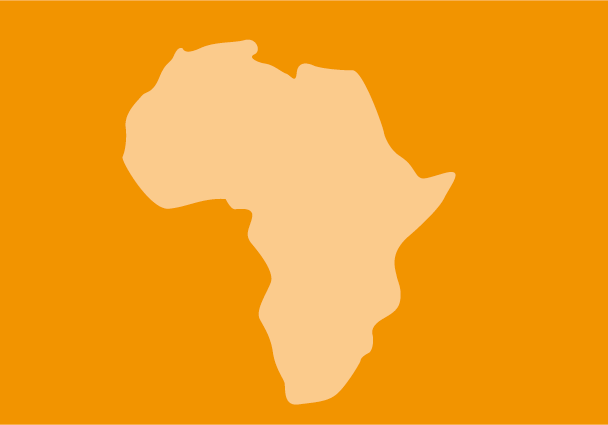
Aug 31, 2018 | Advocacy, Non-legal submissions
Today, the ICJ made a submission to the Committee on Economic, Social and Cultural Rights in advance of Committee’s examination of South Africa’s initial periodic report under the International Covenant on Economic, Social and Cultural Rights. South Africa ratified the Covenant in 2015.
When CESCR convenes to consider South Africa’s report on 2-3 October 2018, it will therefore be the first time that the Committee has the opportunity to review a report from South Africa on the implementation of its Covenant obligations.
In its submission, supplementing submissions made by a range of South African civil society organizations, the ICJ drew the Committee’s attention to:
a) South Africa’s incomplete discharge of its obligations in terms of the Covenant;
b) The South African Government’s need for guidance from the Committee on the discharge of its obligations in terms of the right to work;
c) The South African Government’s need for guidance from the Committee on the discharge of its obligations in terms of the right to an adequate standard of living;
d) The South African Government’s failure to report effectively and accurately on its efforts to realize the ESC rights of persons with disabilities;
e) The uncertain status of the South African Government’s commitment to the enactment of legislation to ensure the implementation of the Covenant;
f) The uncertain status of the South African Government’s intention to ratify the Optional Protocol to the Covenant; and
g) The uncertain status of the South African Government’s declaration with regard to the right to education.
The ICJ’s submission invites CESCR to make various specific recommendations to the Government of South Africa in its Concluding Observations on each of these issues. Broadly, the ICJ also invites CESCR to recommend to the Government of South Africa time-bound commitments to processes leading to:
1. The full domestication of Covenant in South African law;
2. A comprehensive review of South Africa’s domestic laws and policies on ESC rights to ensure that they are implemented consistently with South Africa’s obligations in terms of the Covenant; and
2. The ratification of Optional Protocol to the International Covenant on Economic, Social and Cultural Rights.
The ICJ’s submission also supports submissions by civil society organizations and the South African Human Rights Commission inviting CESCR to recommend that South Africa withdraw its declaration relating to its “immediate” obligations in terms of the Covenant right to education.
Finally, the ICJ considers it critical that the South African Government reflect on the ways in which the Covenant to increases, alters and nuances the nature and content of its human rights commitments and obligations in terms of the realization of economic, social and cultural rights.
This the ICJ submits is particularly crucial in regard to rights which are entrenched in the Covenant but not the South African Constitution such as the right to work (Articles 6-8) and the right an adequate standard of living (Article 11).
In undertaking this process, the ICJ submits that due regard should be had the standards set out in the Covenant as interpreted by the Committee in its general comments.
SouthAfrica-ICJSubmissionCESCR-Advocacy-Non-legal submission-2018-ENG (full text, PDF)









